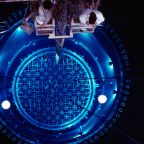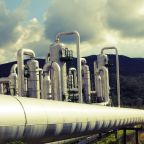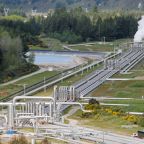Search results

Researchers worldwide are working on small modular reactors (SMR) and microreactors (very small modular reactor, vSMR). Many of these new reactor concepts are being developed for specific applications and have special core geometries. In order to be able to simulate the neutron-physical behaviour of these cores, GRS is developing the simulation code FENNECS (Finite ElemeNt NEutroniCS).
Researchers worldwide are working on small modular reactors (SMR) and microreactors (very small modular reactor, vSMR). Many of these new reactor concepts are being developed for specific applications and have special core geometries. In order to be able to simulate the neutron-physical behaviour of these cores, GRS is developing the simulation code FENNECS (Finite ElemeNt NEutroniCS).

Gesellschaft für Anlagen- und Reaktorsicherheit (GRS) gGmbH
Gesellschaft für Anlagen- und Reaktorsicherheit (GRS) gGmbH
Gesellschaft für Anlagen- und Reaktorsicherheit (GRS) gGmbH
Gesellschaft für Anlagen- und Reaktorsicherheit (GRS) gGmbH
Gesellschaft für Anlagen- und Reaktorsicherheit (GRS) gGmbH

The aim of the integrated Geo-Dat project was to set up a thermodynamic database for the modelling of complex geochemical processes in deep geothermal layers of the North German Basin. Results from the integrated project are incorporated into the thermodynamic reference database THEREDA.

Apart from hydropower, biomass, wind and solar energy, the relevance and use of geothermal energy has been growing over the last couple of years. This is why different research projects are currently looking into the further development of the technology, ways of reducing investment costs, and means of exploiting geothermal potentials in a safe way.